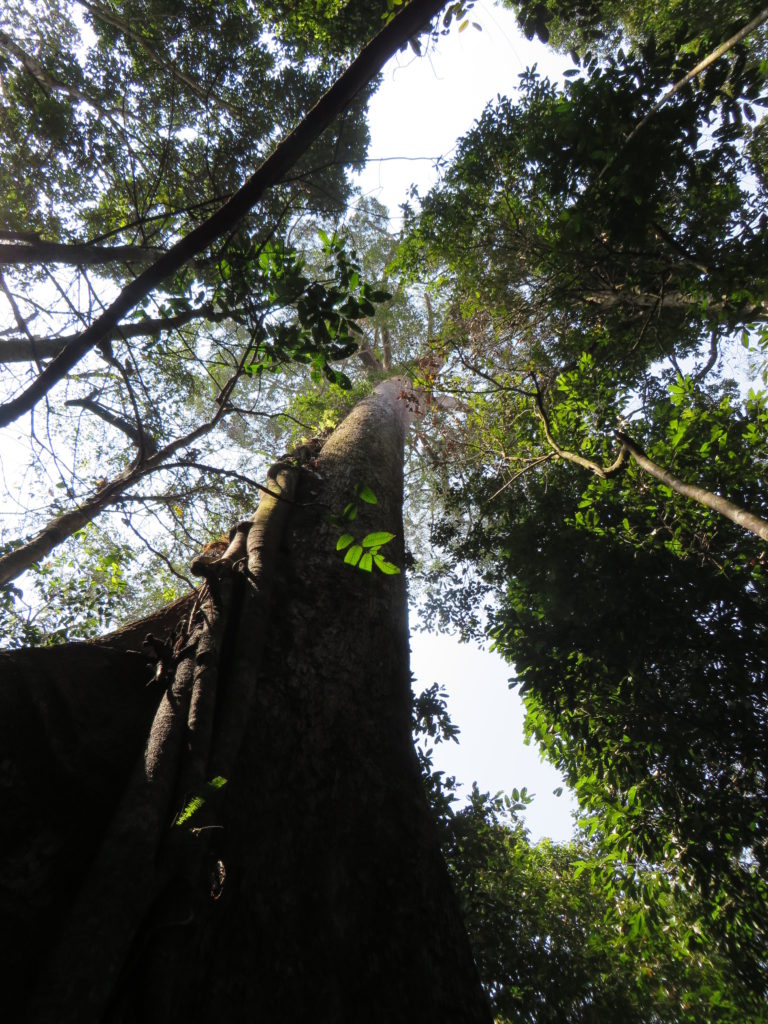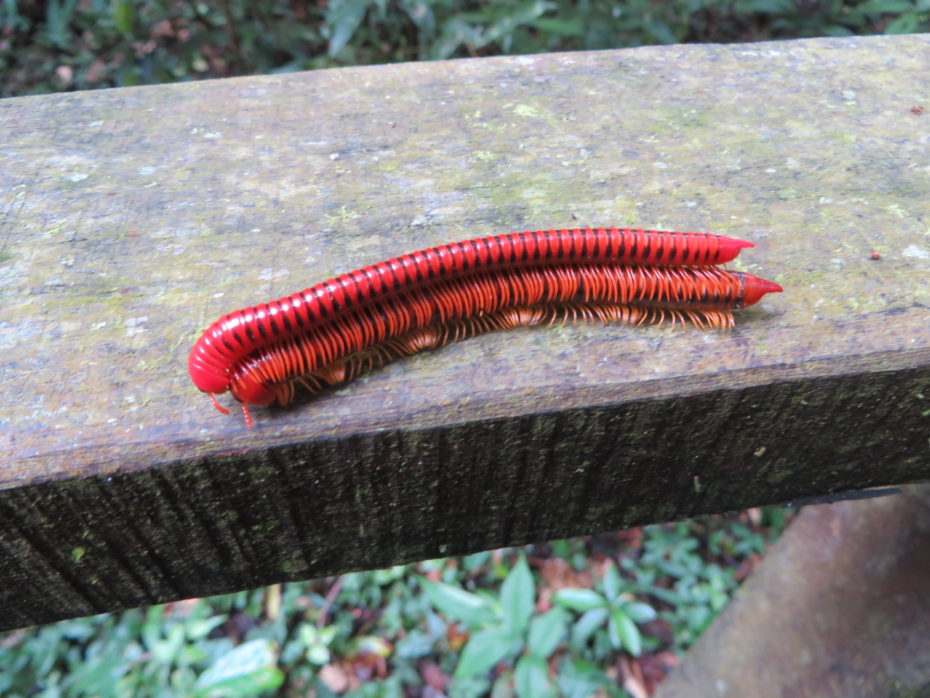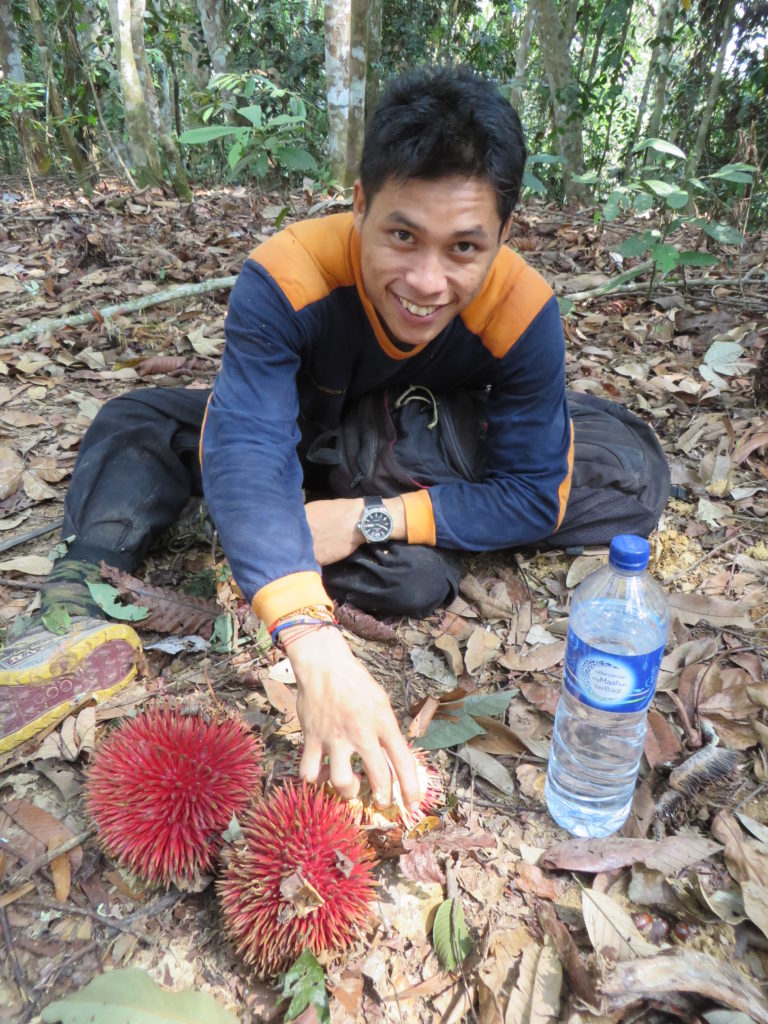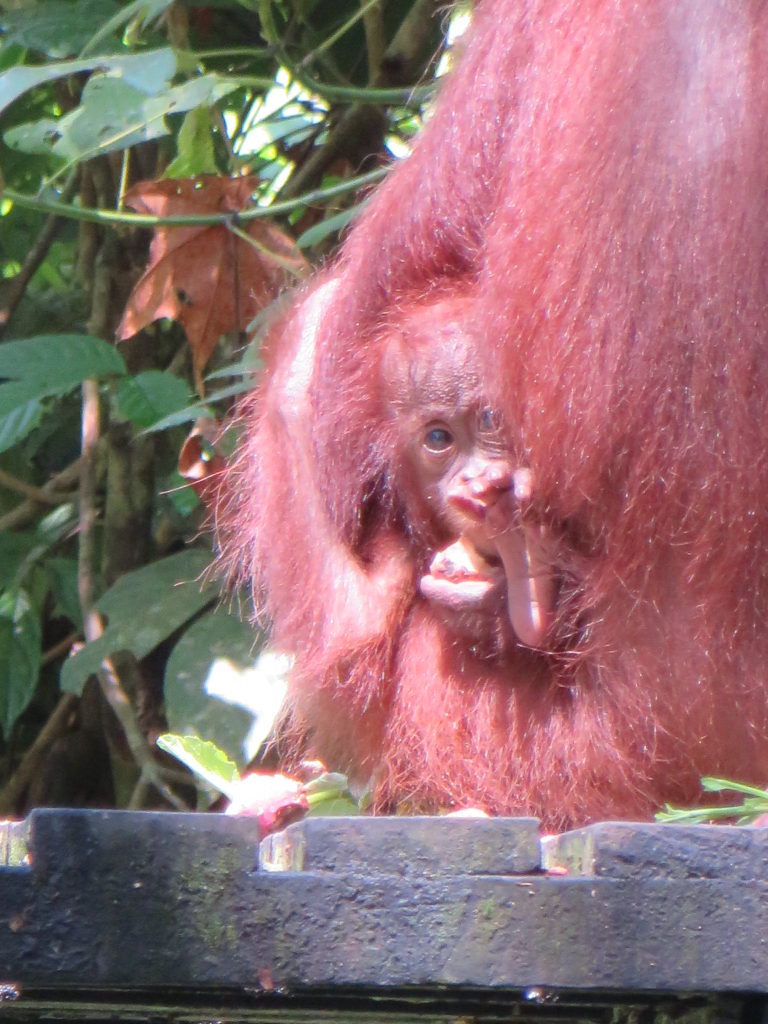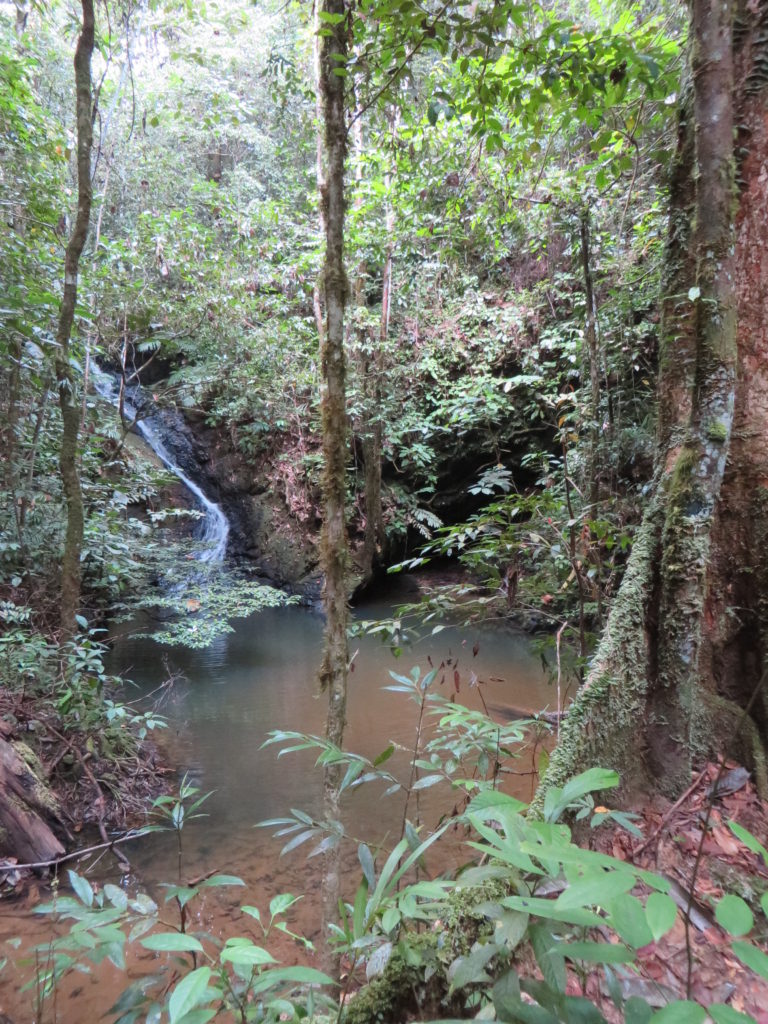I have taken the unusual step of handing over this week’s post to a guest blogger, Professor Tokolodo Dangerleybeets, an Orang Utan from the Wehea Forest, in north-east Kalimantan, Indonesian Borneo, who is an expert in humans and their cultural practices.
Here in the Forest we have two kinds of human: the Treecutters and the Watchers. The former we don’t like, because taking away our trees is like what it is for a human to have a bunch of Gorillas smash up their home, pull up their crops and leave a turd on the doorstep for good measure. They also do other bad stuff, like sending the animals to the Everlasting Forest in the sky, with the added indignity of putting our heads on a wall to look at. Only recently we lost fellow Orang Utan, Uncle Oblong Bod as well as Brother Leopard, who had holes made in them by the human, magic fire sticks used by these insimian meat munchers,
There are two types of the Watchers: the Born Here and the Far Aways. The Born Here call themselves the Dayaks and have been here nearly as long as we have. We like them because they protect our bit of the Forest from the Treecutters, but our bit is not very large and the Big Power From Faraway has given a much bigger bit of the Forest around us to the Treecutters. We tend to stay in our bit of the Forest as we don’t like having holes made in us. The Far Aways are strange creatures and we are only just beginning to understand their bizarre habits. They come from a place nearly as distant as the Everlasting Forest in the sky but it’s not very nice as they cut down all the trees a long time ago and replaced it with something called concrete, which isn’t very good to eat and doesn’t do anything useful, unlike our trees. As well as having no trees they keep all the animals prisoners, except for the little cousins of our Brother Leopards, who they obey unquestioningly and give too much food to, so become too fat to catch their own meals. Far Aways venerate them by sharing images of them with their friends, pretending to do Human things.
Because they feel guilty about chopping down all the trees and keeping the animals prisoner, they travel a great distance to come and watch us with their picture boxes, so they can take the images back home to make their friends feel even more guilty. Far Away Watchers are quite tribal and prefer to follow each other around and although they say they like the Local Watchers, it is too much hard work to learn the language so feel more comfortable surrounded by other Far Away Watchers. Because of this, they have mostly decided to visit our fellow apes in the neighbouring land of Sabah. We only had about a hundred of the Far Aways visit last year but our friends in Sepilok in Sabah have that many each day, despite the fact that our Forest is much nicer, is bigger than theirs and has fewer leeches, which cause the Far Aways to flap their arms about and make a strange whining noise. Our friends there are forced to eat a lot of bananas though, because humans think it is our favourite food. At Sepilok the Born There Watchers will stay for five minutes to watch us being given bananas, make a lot of noise and use their picture boxes a lot before leaving, while the Faraways are happy to look at us for an hour pretending to like bananas. If we decide to do some swinging in the trees they stay longer, particularly if we bring our babies, which makes them produce a sighing sound, presumably because our babies are well-behaved, unlike their own, which squawk a lot because they always want new toys to replace the ones they got bored of the day before.
After Sabah, the Far Aways go to a place called Bali to perform the sacred ritual of Getting Totally Shitfaced. Although it doesn’t always require actually smearing poop on each other’s faces, it does require drinking a lot of their magic water, which makes you humiliate yourself, then fall asleep in the sun so the skin goes even more red than our hair. Further studies are required to understand this mysterious ritual. Incidentally, FarAways with the same colour hair as our own are actually regarded as being inferior and less human than ourselves.
The Far Aways are also fond of our fellows, the Gibbons. For some reason they think the elegant way Gibbons swing through the trees is funny and they are also surprised by Gibbon noises, which they describe as being like an electronic frog on a Playstation. This is a device used by humans with no useful function in society to give themselves the impression of being good at something useful.
Apart from trying to force bananas on us, the Far Away Watchers are mostly harmless but we do sometimes avoid the ones from a land called England, as they smell funny. Once you are sure that the humans are Watchers, not Treecutters (usually they carry picture boxes and sweat a lot) it is best to do some swinging around, whilst making some random noises. This will keep them happy and will make their guilty friends come as well the next year, so helping the Born Here Watchers protect our Forest.
Translated by Inggris Bodoh
Practical information for Humans on a budget wishing to travel to the Wehea Forest
Bring enough cash with you as there is almost no chance of getting any from the local ATMs. Using public transport (shared taxis) from either Samarinda, to the south-east, or Berau, to the north-east, get to Hotel Aldi near Muara Wahau. They have economy rooms and can direct you, or provide an ojek (motor bike taxi) to the Wehea Forest Office nearby. Staff at the Forest regularly travel back and forth on motor bikes so you can pay 500 000Rp to go with one of them, rather than pay 3 000 000Rp to hire a 4×4. You may have to wait a day if no one is going straight away though. It’s nearly three very uncomfortable hours, mostly over logging tracks to the forest. It’s about 1 500 000Rp total for a two night stay, including the aforementioned transport back to Muara Wahau, basic food, guide etc The Forest accommodation is surprisingly comfortable but don’t expect a finely honed operation as they aren’t overwhelmed by regular visitors – it was nearly a week since anyone before me had been there.




